- Learning time
- 10 minutes
- First play time
- 30 minutes
Avenue
Designed by: Eilif Svensson,Kristian Amundsen Østby
In Avenue each player is drawing roads on a pad. Over five rounds more and more roads will be added, and at the end of each round one of your farms will score the amount of grapes they are connected to – but, each farm must score more than the previous one, or you will lose points!
Everyone begins with an identical pad. At the start of each round one Farm card is flipped over showing which Farm will score this round. Then a series of road cards are flipped one at a time, of various shapes – horizontal, vertical, or different corners – and you must draw a matching road shape somewhere on your pad (alternatively, you can take a peek at which farm is coming up in the next round – a helpful piece of knowledge for forward planning).
The road cards are a mix of grey and yellow, and when a fourth yellow card is turned over the round ends and farms are scored. However, careful planning is needed to ensure each farm scores more than the last, in order to avoid -5 points at the end of the game. After the fifth farm is scored (there are six farms) the game ends and points are tallied. At this stage you also score however many green and red grapes are connected to the green and red castles in the corners of your pad. Most points wins!
Joe says
I love these roll and write style games - and this has the added fun of building a route rather than simply crossing out boxes. This game and others like it put me in mind of the Japanese logic puzzles that have become hugely popular in the wake of Sudoku and Kakiro. These scratch a similar itch for me, but they do so in a social way, which is a huge plus.
The guru's verdict
-
Take That!
Take That!
There's no direct interaction here, so absolutely none.
-
Fidget Factor!
Fidget Factor!
Minimal to non-existant. Everyone plays at the same time.
-
Brain Burn!
Brain Burn!
Rules are simple; the only brain-burning here is how lucky do you feel?
-
Again Again!
Again Again!
It's not a game with enormous variety but obviously the cards come out randomly, and it's short and snappy.

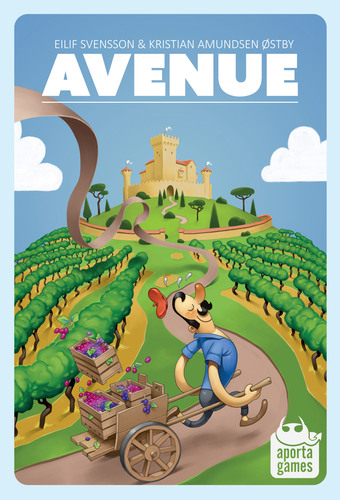
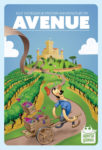
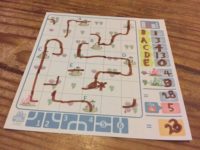
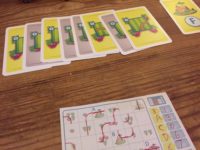


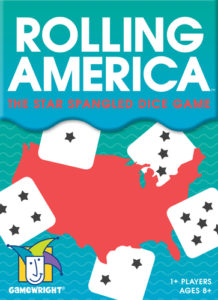

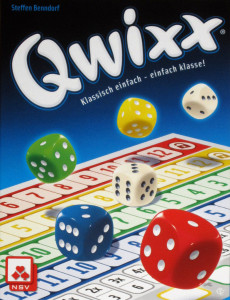
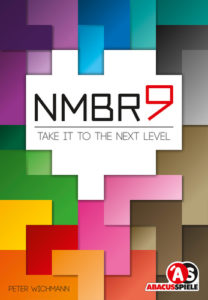
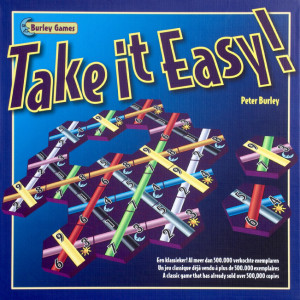
Sam says
These kind of games can drive some people crazy for their lack of direct interaction, but some of my favourite games (Take it Easy and NMBR9) function in a similar way: challenging everyone to a simple puzzle and seeing who comes out on top... as the game progresses and the parameters of what you can do close in on you and your hopes and dreams are dashed or realised. So for me, Avenue falls into that category: a sweet and simple game, but a hit all the same. And you can play with as many people as you like, as long as you have sheets left on your pad!